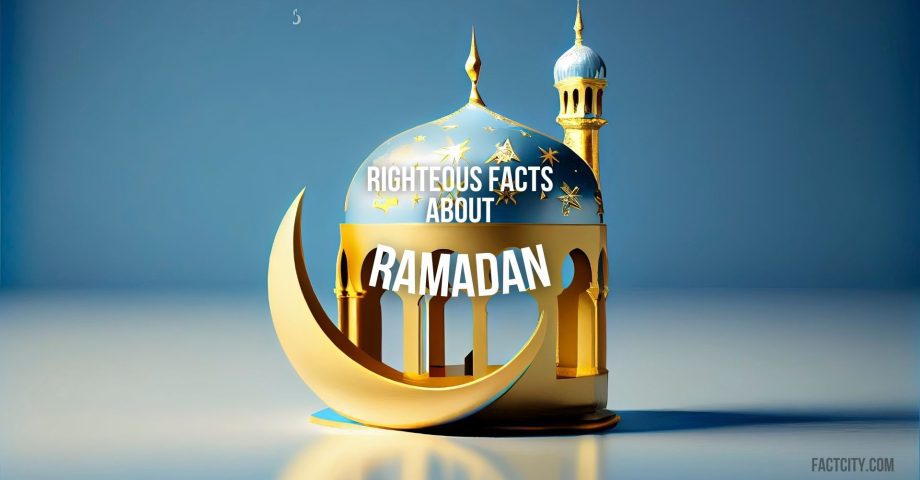Ramadan is one of the most important fixtures in the Muslim calendar – and people all over the world who worship in the Islamic faith regard it as highly important for growth and self-reflection.
It’s during this time that people learn how to exercise self-control and how they can help others in need.
It is the most important month for Muslims around the world to gather and practice their faith in the most purifying way. Yet, many of us still do not understand much about Ramadan, and know even less about why it’s such an essential part of millions of lives.
As always, we’re here to help clue you in on what you need to know. Here are some facts about Ramadan that you may not be aware of!
1. Ramadan’s timing and length depend on the moon.
Ramadan generally lasts up to 30 days each year – so the space of a month, and it normally comes around during Islam’s ninth month in the lunar calendar.
The start of each lunar month depends on various things, including the sighting of the moon at the time – which is why the exact date of Ramadan changes each year – in 2021, for example, it ran from April 14th to May 11th.
And, in 2024, Ramadan began on Sunday, March 10th, and lasted until Tuesday, April 9th. Given the date changes every year, Muslims all over the world wait for the period to be confirmed.
2. Ramadan is an important period of fasting.
Fasting is a huge part of life during Ramadan. It normally takes place between sunrise and sunset, meaning that Muslims must eat meals before and after these times, respectively.
And, it’s not just about food. During Ramadan, participating Muslims cannot drink, smoke, curse, lie, or have any kind of sexual relations after sunrise and before sunset. Any sinful acts of any kind are officially forbidden during fasting, including having bad intentions – even if you don’t act on them.
The meal eaten just before sunrise is known as the “suhoor,” and the one eaten right after sunset is known as the “iftar.”
3. Muslims fast as an act of self-control.
Muslims choose to fast during Ramadan as it is an act of self-discipline. It’s also seen as a time where people can reflect on their own gratitude. This is a period where the needs of the poor come into focus.
Fasting is incredibly important as it is considered one of the Five Pillars of Islam. The other pillars include prayer, pilgrimage, profession of faith, and alms. Officially, these pillars are respectfully known as sawm, shahada, salat, hajj, and zakat.
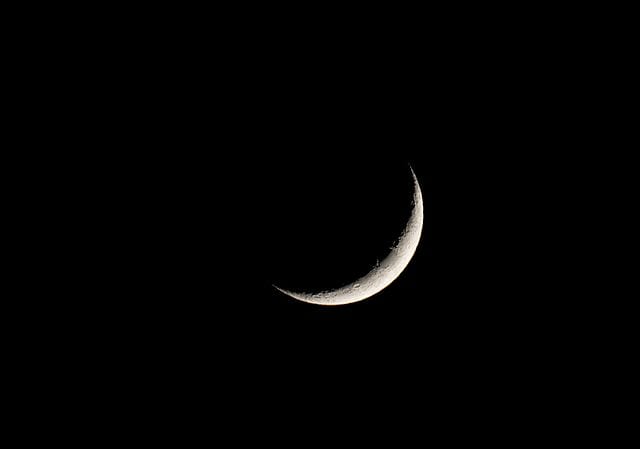
4. It’s the period during which the Prophet Muhammad received the Quran.
On Qadr Night, also known as Laylat Al Qadr, Muslims celebrate the arrival of the Quran, the main religious text of the Muslim faith, believed to be a revelation from above sent to Earth
It is at this time that Muslims believe the Prophet Muhammad received the holy book from the heavens above. This is seen as a pivotal event of the whole festival.
This night usually takes place on one of the last ten days of Ramadan, which, again, are determined depending on the moon’s cycle.
5. It’s an important period for Muslims to reach out to Allah.
Ramadan is seen as an important occasion whereby Muslims feel closer connections to God, or Allah. It’s also seen as a time for celebrating family and loved ones, and is therefore an often very social affair!
Families usually gather to break fast, for example, by eating dates and starting with a glass of water. It’s a period of incredible self-discipline.
6. The celebration brings communities together.
Ramadan is also seen as a community celebration in many ways. That’s because people tend to come together in their local communities to pray and celebrate at local mosques. In majority Muslim countries, these communities are even larger – and the celebrations are, too!
Aside from simply coming together, since Ramadan is seen as a charitable month, many Mosques and Muslim communities also gather to make food drives to “break fast” with those less fortunate or who are alone.
Therefore, millions see Ramadan as a solemn opportunity to both apply discipline to oneself and to think deeply about those around them.
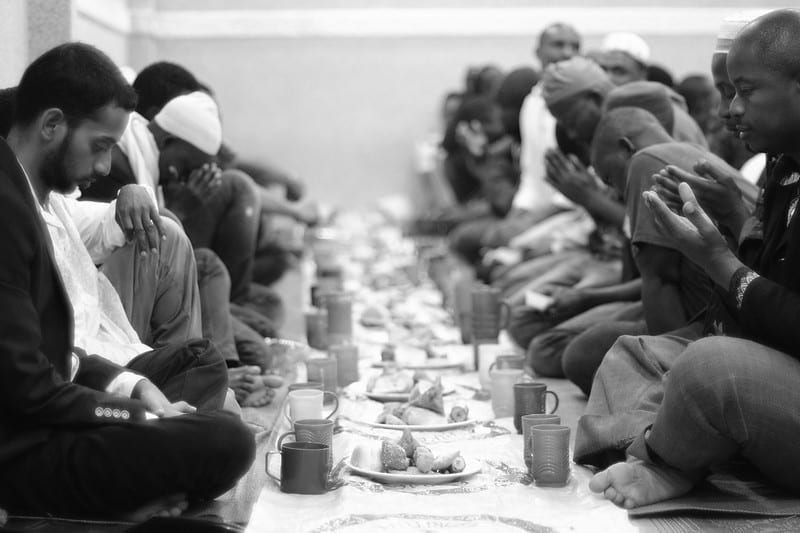
7. School and work end early for Ramadan in some regions.
Depending on the country, Ramadan will also see many businesses and schools shut down early. This will normally occur in regions and countries where Islam is the majority religion.
8. There are a few ways to greet people during Ramadan.
You can share many useful phrases during Ramadan to wish people a happy and peaceful celebration. Ramadan Mubarak means “Happy Ramadan,” while many people use Ramadan Kareem, which means to wish people a generous time.
Both of these greetings hail from Arabic, though in some cases, it is respectful to wish someone a happy Ramadan in English.
However, do not assume everyone feels the same way in this regard – always check first.
9. It’s an important week in Islamic history.
Ramadan is celebrated as the period during which the Prophet Muhammad started receiving revelations from above. Therefore, Ramadan has been observed since 624 AD!
It is one of the longest-running religious festivals and observations in history, and in 2024, Muslims celebrated 1400 years of Ramadan.
10. It’s a highly charitable time.
As mentioned briefly, this period is a time of great giving for Muslims, too. During Ramadan, Muslims will normally undertake charitable efforts to ensure that the poor and needy are catered for. There are two types of giving during this period – Zakat, which is mandatory, and Sadaqa, which is optional.
11. Egypt changes the way days are calculated to support people observing Ramadan.
Egypt tends to shorten the days during Ramadan to account for less fasting hours – they do this by moving the clocks around. That means they can still honour the sacred period of Ramadan, but they won’t have to fast for as long – it’s a smart move!
Thanks to daylight hours varying around the world, Muslims in some countries observe much longer fasting periods than others. For example, in 2024, Muslims observing Ramadan in Finland and Iceland faced 17 daily fasting hours.
On the opposite end of the scale, South Africa, Argentina, and New Zealand all experience very short fasting hours, with no more than 13 daily.
12. The end of Ramadan is highly celebrated, too.
The end of Ramadan is celebrated with Eid ul Fitr, a huge festival that seals the end of the fasting period. This is also a time where people will seek forgiveness in the eyes of Allah.
It is a time of joy and thankfulness, which typically involves the praising of Allah for helping people get through the fasting period.
Practicing Muslims typically spend the final day of Ramadan attending Mosques, visiting loved ones, praying, giving to charity, and even exchanging gifts! And, of course, once Ramadan is over, Muslims can enjoy sharing meals with others during daylight hours again.
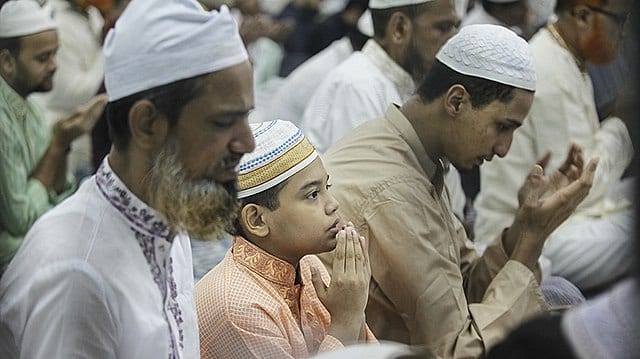
13. Fasting begins with intention
Fasting during Ramadan typically begins with a prayer, officially known as a due, and an intention, officially known as niyah.
Good intentions are crucial during Ramadan – as bad intentions are seen to invalidate one’s fasting. Therefore, it’s wise to focus on the good one can do for loved ones and those in need – and not just during Ramadan, of course!
14. Dates are very important during Ramadan.
You may see references to dates when researching Ramadan, and there is a good reason why – and we’re not talking about calendar dates, but the fruit! Dates are often used as a traditional fast breaker for observing Muslims.
One reason for them choosing to break fast with dates is tradition. It is believed that the Prophet Muhammad broke his fast by consuming a meal of water and dates. Dates are also mentioned in the Qur’an over 20 times – they’re very important in the wider faith!
Dates also make a great breakfast food because they are easy to digest, high in fibre, can help hydration, contain natural sugars to provide instant energy, and have many other health benefits!
However, without access to dates, many people choose to simply break fast with water – there is some flexibility!
15. It is celebrated by people around the world.
Ramadan is broadly observed and celebrated by around two billion Muslims worldwide every year! That’s just under a quarter of the world’s population at the time of writing.
Around 3.45 million practicing Muslims, for example, live in the US alone.
16. Not everyone has to fast.
While Muslim obligations during Ramadan are steadfast, some rules don’t apply to everyone.
For example, young children, pregnant women, and even women who are breastfeeding or menstruating, as well as the elderly and the sick, are not expected to fast.
If you are able-bodied and medically able to fast without falling ill, you’re encouraged to take part as a vital passage each year.
17. Some Muslims read the whole Qur’an during Ramadan.
Many Muslims choose to read the whole of the Qur’an during the month of Ramadan, in one way, to help immerse themselves more in their faith.
Muslims who do this state that reading the Qur’an from start to finish enables them to reflect on their holy text, can help with prayers, and feel more connected to their faith.
Mosques worldwide also hold special services during Ramadan, specifically to read the Qur’an together.
18. Choosing the right meals during Ramadan is essential.
Given that the fasting period is so long, picking the perfect meals to eat before and after the fast is crucial.
For example, the suhoor should ideally be a big, hearty meal to provide enough energy to last the person throughout the day. That means it ideally needs to be loaded with calories – no diets here, we’re afraid!
The itfar, meanwhile, should provide energy quickly and help the consumer feel full enough until their next meal. Remember, hydration is included in both meals – so Muslims need to get their fill!

19. Always check the rules of the country you are traveling to during Ramadan.
Even if you are not of the Muslim faith, you need to be aware that while traveling in certain predominantly Muslim countries, you are expected to fast and observe the rules of the period.
You may also not be allowed to drink alcohol or smoke, at least in public, during Ramadan. These rules are intended to help local Muslims feel supported and respected. While this isn’t the case in all predominantly Muslim countries, it is always best to check beforehand – and if you don’t observe Islam yourself, it’s respectful to follow the majority of people wherever you go.
20. Children are brought up getting ready to fast.
While young children do not have to fast, and it is recommended they do not, very young Muslims are still taught to prepare for the days to come during which they will fast.
For example, children around seven can start learning how to fast by fasting only for half days, or maybe just on weekends.
The way they prepare as children depends on the families behind them. However, learning early on about fasting and what it can feel like will help them get a better sense of how to manage themselves and their meals during future Ramadan observances.
That being said, children don’t have to fast until they have at least reached puberty, so they have time to learn!
21. First-time fasters are widely celebrated.
Oftentimes, Mosques around the world will even give special recognition to children who are fasting for a full day for the first time in their lives, as well as those experiencing their first Ramadan.
Again, it’s another extremely important rite of passage for Muslims – as for many, it marks an official step toward adulthood and toward a deeper understanding of the Qur’an.

22. It’s very common for people to nap during Ramadan!
Since businesses and schools tend to end earlier for those observing Ramadan, napping is quite common in the afternoons! Napping can also help to conserve energy until the next meal, and can contribute to appreciating Ramadan.
It’s recommended for younger people who are just getting used to not eating and observing the rules during the daylight hours. A quick nap can also be a great pick-me-up for people who have busy lives.
23. Community dinners are common around the globe.
Certain Mosques also hold community dinners. These are social occasions where Muslims from all over can gather together to break their fast.
This is a great option for those who are alone, poor, or even cannot find it in themselves to cook, or would simply like to be surrounded by their community.
As mentioned, it’s also a good period during which Muslims can come together and read through the Qur’an as a community, and refresh themselves on what their faith means to them.
24. Most Mosques observe the Taraweeh.
Following night prayers, most Mosques also hold special Ramadan prayers known as Taraweeh.
During these prayers, the prayer leader attempts to read at least one-thirteenth of the Qur’an. The idea is that the entire Qur’an will have been read by the end of Ramadan. Again, this is a highly popular way to observe the period.
25. Ramadan could even benefit your health.
Although fasting may seem strict to some non-observers, many healthcare professionals see it is a great way to lower cholesterol, weight management, and more!
While Muslims use fasting to purify the body and the spirit, it’s nice to know that it could also be doing them a world of good, too.
Of course, if you are a non-observer and want to try fasting for yourself, we recommend you speak to a doctor or nurse before you begin. It’s wise to ensure you don’t have any health conditions that might worsen due to a sudden change in diet.
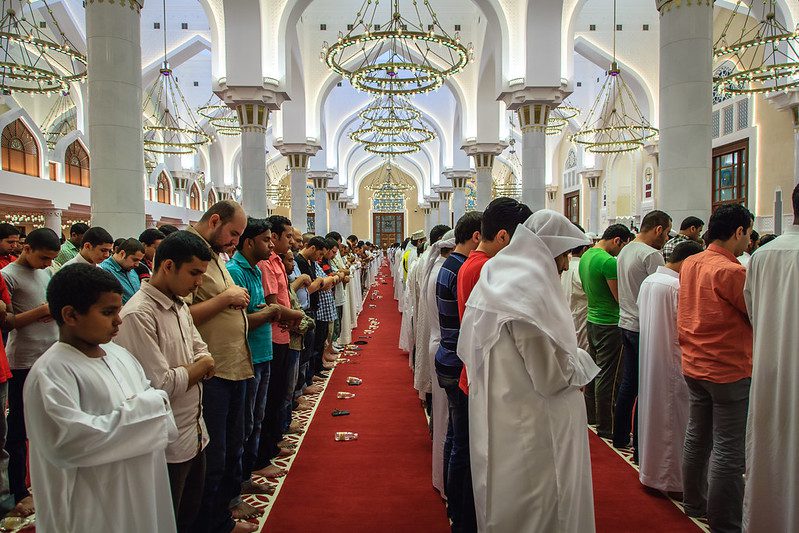
FAQs about Ramadan
Can you drink water during Ramadan?
No - you aren’t allowed to drink water during the daylight hours of Ramadan, i.e. between the hours of sunrise and sunset. The fast applies to food and drink in equal measure.
Can you brush your teeth during Ramadan?
Technically, you can - but you won’t be allowed to swallow any toothpaste or mouthwash by accident, so it pays to be very careful.
Can you kiss during Ramadan?
Yes - kissing, hugging and close contact are all allowed during Ramadan - don’t worry! That being said, sexual relations are not permitted during fasting hours, as they can be considered sinful acts.
Do you know any fun or interesting facts about Ramadan? Share them in the comments below!
